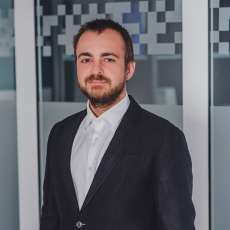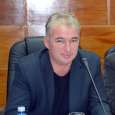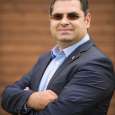Electroalfta has been present in the Romanian energy market since 1991. Their production capabilities include three plants and their work is structured between the following business units: electrical equipment, steel fabrication parts and EPC contracting.
Electroalfa is a nearly 30 year old business and an important player in the local energy ecosystem. How has the company progressed over time?
Electroalfa was born at the end of the 1990s, alongside the first forms of democracy in Romania. At the time there was a disconnect between supply and demand, following the previous system which was rigorously planned, and this represented an opportunity for entrepreneurs to find a place in a market that was just being created.
Initially, we managed assembly of rather simple equipment, but as the market grew so did the company, its turnover and the number of people we employed. We developed our production capabilities and evolved towards a complex product portfolio that covers a wide spectrum, in fact we have the widest range of products among local manufacturers in our field. In parallel, we developed a line of business focused on steel fabricated parts. The reason behind it was the fact that in the 1990s we could not find any local producers for such parts, so we saw the need to develop these capabilities internally. The third area of business that we hold under the Electroalfa umbrella consists in turnkey projects in the energy field, which means we handle both the design and the actual execution of the projects.
What are the primary focus areas for the company at present, and what is the motivation behind your new management system?
We are primarily focusing on improving the efficiency of our processes, both in terms of business operations and production. For instance we are investing 5 M EUR in modernizing the production capabilities and increasing efficiency. This change is also driven buy the fact that human resources have become harder to find in Romania so we are using process automation as a solution.
In the same time we are indeed implementing a change in the management system, namely we are adopting the Kaizen methodology which consists of a series of instruments and principles for structuring the business. We have been working on integrating this methodology for three years now, and we have done this by creating a team of people that included management as well as other members of the company, that stood out through their work in various sectors of the business. Starting from the common values that we hold, we have cemented our vision and mission going forward, and we have identified ways to quantify what they mean in a way that allows us to achieve our goals easier. It is a collective effort, if the ideas do not resonate enough with people in the company, if they do not see the benefits than they do not have reason to change the way they work.
Are you exploring options for expanding outside the borders of Romania?
Traditionally Romania has been the key market for our company, but for a few years now we have been looking for opportunities internationally and we have been exploring the best way to approach new markets. We have recently set up a presence in Senegal, after a long process of analyzing the market and identifying local partners. We believe we have a solid understanding of how to approach this new venture, but it is to be seen whether the market will truly present the opportunities we hint at now
When it comes to challenges surrounding going overseas, we noticed that there is not a strong infrastructure in place for this in Romania. For instance, German companies benefit from a very strong support provided by their Chambers of Commerce, that assess opportunities around the world and bring together possible business partners. Having someone that can facilitate direct meetings with decision makers is extremely valuable. In places where this kind of infrastructure is missing, as is the case for Romania, it can become very expensive for companies to identify the potential of certain markets. This reduces the appetite for exploring new opportunities.
What role does technology play in within Electroalfa, in this era of constant innovation?
We use very modern technology in the production process. In fact, we are just finalizing a 4 M EUR investment this year, which includes the acquisition of modern equipment using the latest technologies, like laser machines and welding robots.
We also have an in-house R&D department that serves several functions, for instance that of updating the products we already have in our portfolio. Every product has a certain life cycle and inevitably requires upgrades at times, imposed either by market regulations or new technologies that appear. Another function is related to developing new products, which does not necessarily mean creating something completely new and revolutionary, rather it involves small improvements that make the overall product better. The risks are very high and the need for security cannot be understated, so any modification needs to be thoroughly thought out.
What is your outlook for Romania’s energy sector over the course of the next few years?
The local market is on a positive trend; there are many EU funds available so once we overcome the present political impasse we expect great opportunities to open up. There is an entire area of infrastructure waiting to be developed, whether we are taking about roads, railways, water purification and treatment plants or the modernization of some power generation facilities, given that many of them have reached the end of their life cycle. We do have to tackle the challenge of a shrinking labor force. Being located in Botosani adds another layer to this challenge for us, because it is a city that tends to export more human resources than it brings in. Aside from this the prospects are very good and we expect a boom in investments in our field.





